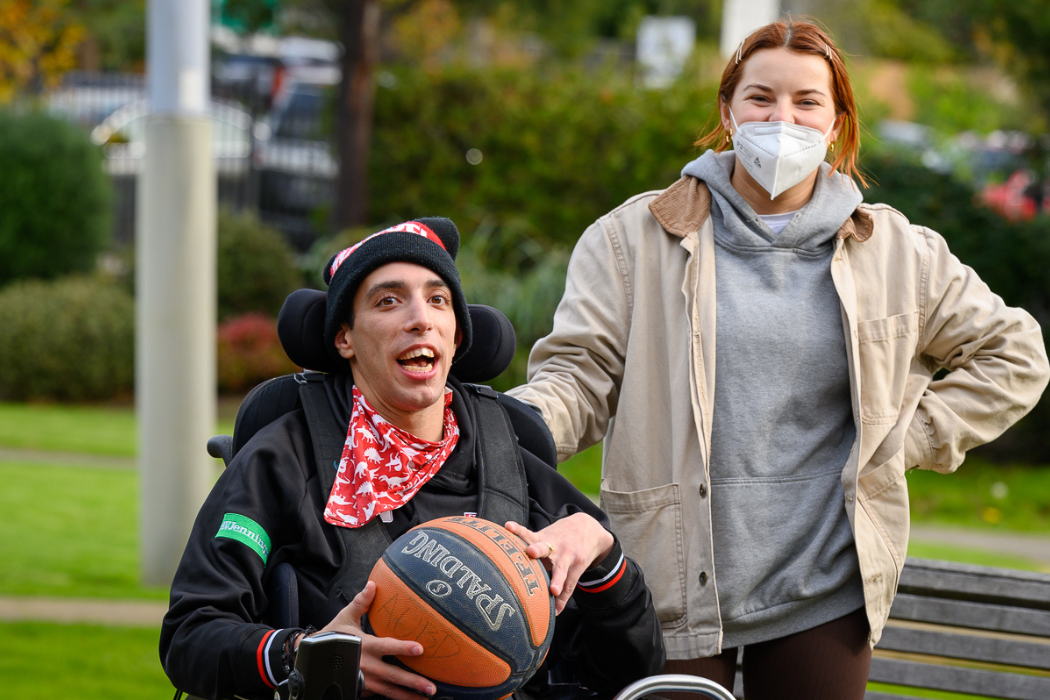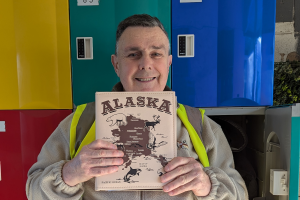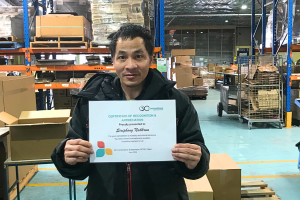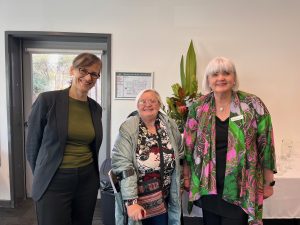The Final Report of the Royal Commission into Violence, Abuse, Neglect and Exploitation of People with Disability has been released.
The research findings, collected through thousands of interviews, submissions and panels, provide a detailed understanding of Australia’s current disability landscape. It describes the prevalence of ableism in our society, within our education system, labour market, and housing. Many Australians voiced their vision for a more inclusive society, including:
- – To live, learn, work, play, create and engage in inclusive communities
- – To have disability be treated as a natural part of human diversity
- – To be empowered to have choices and independence
Background
Almost 20% of Australians are living with a disability – we’re incredibly diverse and no individual is the same. More than half of people with disability have experienced some form of physical or sexual violence. People with cognitive or psychological disabilities, and people with intersectional identities, such as First Nations, LGBTIQ+, and culturally and linguistically diverse people, are at higher risk of abuse and discrimination.
But people living with disabilities are more than just statistics. Commissioners listened to the lived experience of thousands of people with disabilities, their families, friends, carers and service providers, in hopes of creating a better future for people with disability.
Recommendations and insights are based on the UN’s Convention on the Rights of Persons with Disabilities (CRPD) – a human rights framework that helps to guide our efforts and ensure that they are sustainable, adequate and don’t discriminate. With a trauma-informed and human rights approach, the Royal Commission has provided a total of 222 recommendations to meet the visions of inclusion and pride of people with disabilities.
OC Connections provides disability support in several areas of everyday life, including housing, employment, independence, and support coordination. The results of the Royal Commission will inform and impact the support that we provide and will guide us through the industry changes and developments to come.
Below are some of the major recommendations that will inform the progression of the disability sector.
REcommendations
Enabling autonomy and access
Autonomy is the right to make your own decisions and exercise choice in your life. People with disability must have appropriate access to environments, services, facilities, products and information in a way that responds to their needs.
The Royal Commission recommends improved accessibility and dissemination of information under the Minister for Communications’ portfolio. Providing communications in accessible formats and through interpreters is vital in improving health and justice outcomes for people with disability, improving employment opportunities, and reducing the risk of harm in emergency situations.
‘Supported decision-making’ was a recurring term used in the Report – it’s about supporting a person with disabilities to exercise their autonomy and make their own decisions. The recommended ‘supported decision-making’ framework aligns with OC Connection’s ‘Co-Achieve’ model, in which participants are empowered to choose their individual goals and pathways with the support of their carers.
Inclusive Education
With the overarching aim of total inclusion, the Royal Commission gave several recommendations for improving equal access to mainstream education and enrolment. The recommendations focus on preventing gatekeeping in mainstream schools, removing exclusionary discipline to keep children with disabilities in classrooms, and improving policies on support adjustments for students with disability.
Commissioners were unable to reach an agreement on the place of specialist schooling and services in an inclusive society. Half of the commissioners determined that any kind of specialist education that takes children with disabilities out of mainstream classes is segregation, whereas the other half believe settings exclusively for people with disabilities aren’t inherently segregated if they are also spending large amounts of time with their non-disabled peers in the broader community. If Australia were to phase out specialist disability settings, huge adjustments need to be made to ensure mainstream schooling has the capacity, guidance and tools to adapt teaching practices to enable diverse learners, especially those with complex communication needs.
The report also recommends stronger career guidance and transition support services for students with disabilities in school, and continuing professional development opportunities for educational leaders including principals, teachers, and assistants.
Inclusive Employment
With a strong focus on increasing public sector employment for people with disability, the Report recommends several areas of improvement starting with the Australian Government setting specific targets for disability employment, accompanied by the application of ongoing reporting measures.
To incentivise businesses and entities in all sectors to provide employment for people with disabilities, the Commission recommends adopting procurement policies and embedding an ‘open employment first’ approach in the NDIS Participant Employment Strategy.
Commissioners were once again divided when it came to Australian Disability Enterprises (ADEs) – some believed that employment settings exclusively for people with disabilities were segregated, however others didn’t agree. All commissioners agreed on the positive benefits of supported employment, however also recommend strengthening transitions out of ADEs and improving minimum wages for supported workers.
Inclusive Housing
The Royal Commission provided several recommendations for tackling homelessness and increasing the availability of accessible housing. This includes improving tenancy protections and social housing procedures for people with disabilities.
While commissioners agreed on phasing out segregated housing for people with disabilities, they understood that choice and control are pivotal in seeking accommodation services. They recommend identifying minimum service standards and monitoring of supported residential services (SRS), as well as improving group homes and access to alternative housing options, to ensure transitions into inclusive housing are effective and comprehensive.
Disability Services
Many stories of abuse, neglect and exploitation came out of disability services across Australia. An overarching recommendation of the Royal Commission is a capacity building program developed by a NDIS Commission – the program would help service providers embed human rights into the design and delivery of services.
Another recommendation is stronger, robust disability support worker screening and recruitment. Covering gaps in training, as well as strengthening the quality of training and supervision provided to support workers, will help to ensure transparency and accountability.
Tackling the shortage of disability workers will require significant change in renumeration, training and retainment strategies, and changes were proposed to the SCHADS Award to assist with bolstering the industry.
Realising the human rights of people with disability
The Australian Government must take a preventative approach to human rights abuses against people with disabilities. A major recommendation from the Royal Commission suggests introducing legislation that reflects the CRPD and ensures the human rights of people with disabilities are engraved in domestic law.
Governing for inclusion
Along with an improved Disability Discrimination Act, the Royal Commission recommends updating state and territory disability strategies and plans to align with the issues and findings of this report, as well as national agreements, strategies and plans that affect people with disability.
They also recommend establishing a National Disability Commission, led by people with disabilities, as an independent body to support communities, monitor and report on outcomes, and promote best practice and approaches to improving outcomes.
Another major discussion point was the complaint and feedback processes within disability services providers and government bodies. The Commission recommends the creation of independent complaint reporting, referral and support – independent state bodies must remove the burden of navigating complaint services, while establishing a strong reporting pathway.
OC Connections welcomes the Royal Commission’s recommendations and is committed to working with people with disability and all key stakeholders, to ensure that every individual with disability is provided with autonomy, choice and access to the care they need.
We welcome a more inclusive world for people with disability and believe that every person should live a life free from discrimination, abuse, neglect, and exploitation. We hope this report brings a more positive world for people with disability and will continue to keep you updated on further developments.
Therese Desmond, OC Connections CEO
There are several recommendations and topics of discussion not covered in this blog, such as criminal justice, First Nations, healthcare and treatment, and reporting and analysis beyond the Royal Commission.
Please click here to read and review all information in the Final Report.





